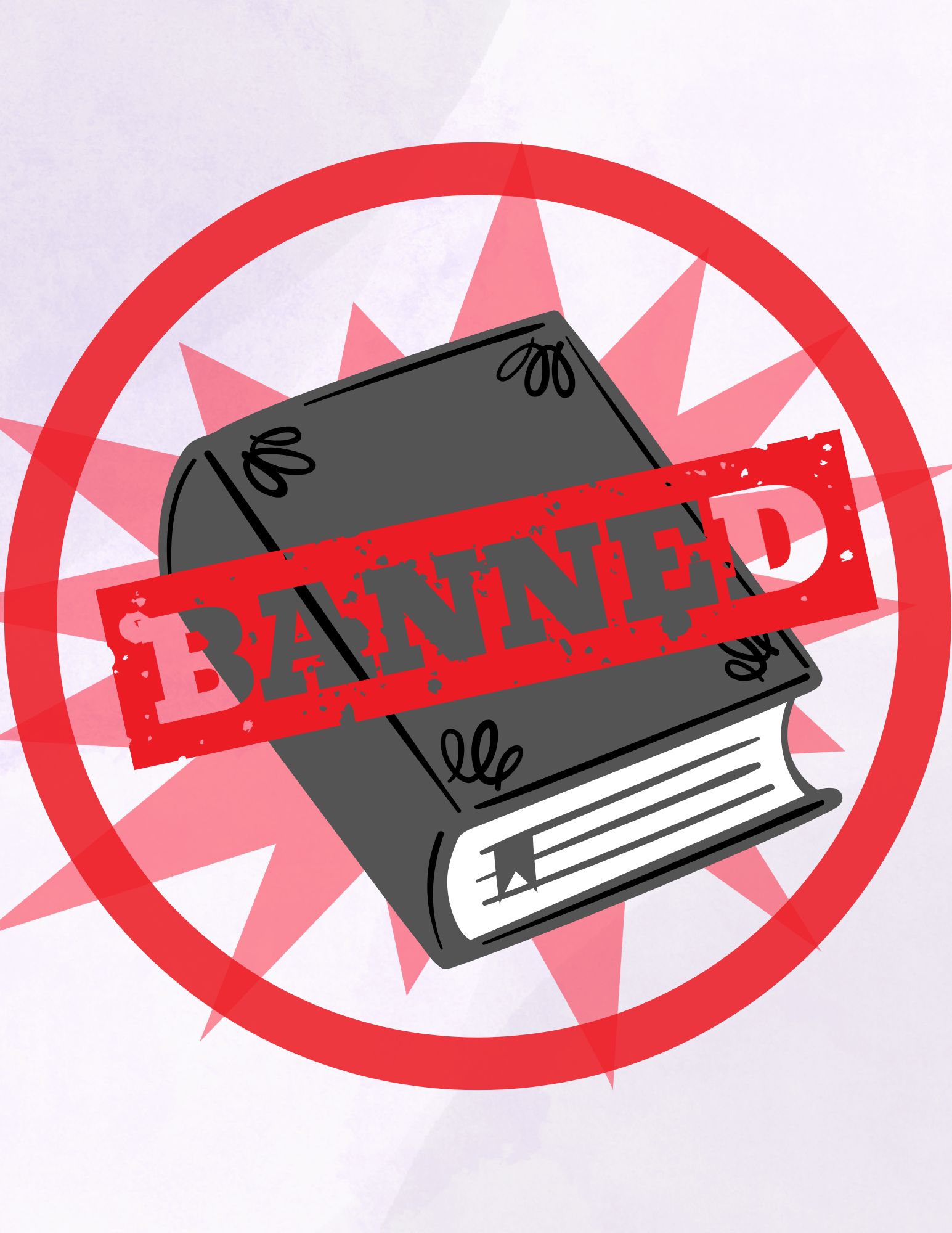In recent months, the Trump administration has intensified efforts to reshape education content surrounding Critical Race Theory (CRT) and Diversity, Equity and Inclusion (DEI) content in schools across the nation, leading to widespread debate over censorship and academic freedom.
The US Department of Education recently issued a press release titled “U.S. Department of Education Ends Biden’s Book Ban Hoax,” suggesting that concerns over widespread book bans were overstated by Biden’s administration and dismissing cases against book banning. However, recent bans, including removal of literature concerning the topics of CRT and the LGBTQ+ community in military schools worldwide, have concerned both students and teachers.
Senior and library teaching assistant Eric Whitten says that books on these topics educate people on experiences that are different from their own.
“It’s really tragic, because [it’s] so important to get different perspectives,” said Whitten. “There weren’t a lot of people of color at my elementary school so I read a lot of books on that experience. It really opened my eyes to [their experiences].”
Whitten also believes books on CRT and LGBTQ+ experiences help students build a more inclusive community.
“It fosters empathy. It forces people to confront history,” said Whitten. “There’s a saying ‘History doesn’t repeat itself, but it rhymes.’ Things aren’t gonna look the exact same as they have in the past, but I think it’s really important to teach students [to] be able to recognize the signs of oppression so they can interrupt it.”
Librarian Lori Lieberman commented on the books that are being banned, such as the “House on Mango Street” by Sandra Cisneros and “Damsel” by Elana K. Arnold.
“All the books that they’re banning in Utah and South Carolina, we have here. It’s disheartening, because I think what’s going to happen in our country is there’s going to be people who are going to be exposed to books and ideas that other people are not going to be getting exposed to. That’s really unfortunate,” said Lieberman.
Lieberman explained the process of banning books in the case of Portland Public Schools (PPS).
First, a book can be challenged to be removed from school libraries and curriculums by a member of the public who has read the book fully to prevent extracts from being taken out of context. Then, the district committee will review the case and decide whether or not the book should be removed.
“I don’t know of any books that have been banned from school libraries in PPS but there have been challenges and bans in Oregon,” said Lieberman.
She believes that the increase in book banning across the country can lead to decreased critical thinking and an undereducated American population.
“I’m astounded. I definitely think that Trump is very interested in defunding public education. I’ve always thought that public education is the backbone of our democracy, and I think if you silence dissent and question, you silence intellectual freedom and thought. You’re going to wind up with a really stupid population, and I think that’s [the] goal,” said Lieberman. “It’s chilling.”
Whitten commented on the importance of talking about such topics in classrooms as well as being adequately informed on them. He expresses that the way the topics are covered in schools influence how students think beyond their educational journey.
“[Students] are going to hear about these topics in the real world, but they won’t have the education or the ability to see it from different perspectives, and they’re just going to see this one narrative that has been pushed on them. It isn’t right, and it really upsets me,” said Whitten.


